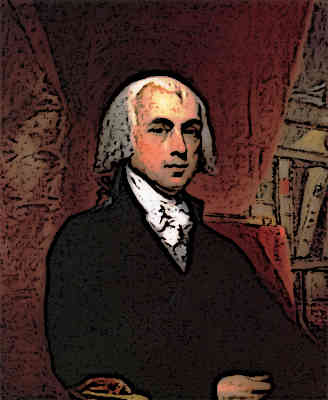Bill of Rights
Bill of Rights Background
In 1781, the United States Congress adopted the first Constitution which was called the Articles of Confederation. These articles defined the rules according to which the U.S. government would function.
Later, these rules proved insufficient and a new constitution was drafted by delegates from all American states in 1787. This Constitution was approved in 1789.
At this time, many American states believed that a Bill of Rights was an essential part of the constitution. So in 1789, a Bill of Rights was written and introduced in the Congress for approval.
Who wrote the Bill of Rights?
James Madison wrote down the Bill of Rights. He had previously played a very important part in the approval of the Constitution. The constitution established a federal government and some states weren’t sure they wanted to join the federation.
James Madison convinced these states by writing down Federalist papers which explained how a strong federal government could be beneficial to all the states.

What was written in the Bill of Rights?
The Bill of Rights comprised of 10 amendments. James Madison has originally proposed 12 amendments but eventually, Congress approved only 10 of them. These amendments were as follows:
The First Amendment guarantees freedom of speech, freedom of press and the right to protest.
The Second Amendments grants U.S. citizens the right to bear arms.
The Third Amendment guarantees that U.S. soldiers can’t take over any citizen’s home without permission.
The Fourth Amendment grants protection from illegal search and seizure of property. It says that the government must have a warrant in order to do so.
The Fifth Amendment says that a citizen can’t be forced to give testimony in a court if his testimony may incriminate himself.
The Sixth Amendment guarantees that in the event of a crime, a speedy trial by a fair jury will decide the matter quickly. And that the person accused will have full right to defend him or herself against the charges.
The Seventh Amendment says that certain civil cases can also be tried by a jury.
The Eighth Amendment says that the punishments for crimes should be just and fair, and not cruel.
The Ninth Amendment says that the rights stated in the Bill of Rights are not all and people have many more rights which are not yet included in it.
The Tenth Amendment says that any powers that are not given to the central government either belong with the individual states or the people.
Approval by the Congress
James Madison wrote down 12 amendments in the Bill of Rights and presented them to the Congress in 1789. The Congress continued discussing these amendments which were really important to balance the power of the federal government.
So on December 15, 1791, Congress approved 10 of these 12 amendments and they became a part of the U.S. Constitution.
These were the first ever amendments to the present U.S. Constitution and they provided legal guarantee for some of the most important rights of U.S. citizens.
For this reason, the Bill of Rights is considered one of the most important documents of U.S. history.
- Birth of the USA
- 1st Amendment
- 2nd Amendment
- American Enlightenment
- American National Anthem
- Articles of Confederation 1777
- Betsy Ross
- Bill of Rights
- Birth of USA Timeline
- Christopher Columbus
- Declaration of Independence
- Federalism
- Is the United States a Democracy?
- Isolationism vs. Interventionism
- Liberty Bell
- Pledge of Allegiance
- The Torch of Liberty
- The U.S. Constitution
- Treaty of Paris
- War of Independence
- Washington D.C
- What Is The American Dream?